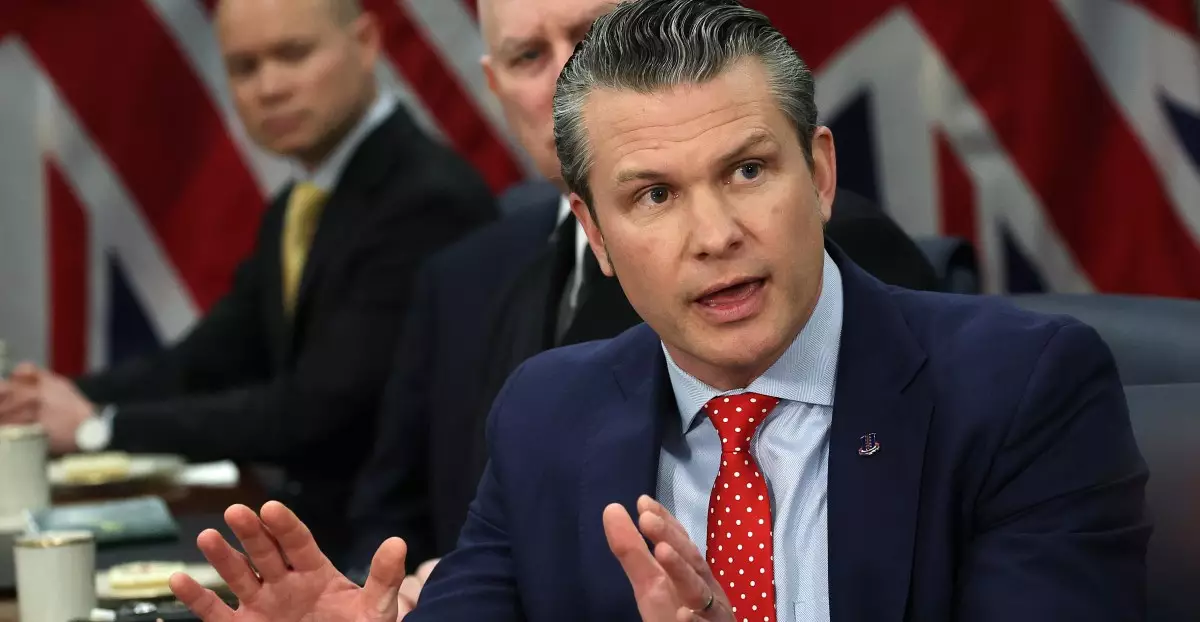In an era dominated by technology, the communication toolkit of government officials has expanded significantly. However, with this convenience comes the peril of unintentional exposure, as highlighted by a recent blunder involving the U.S. administration’s military operation discussions. The incident revolves around a Signal group chat, called the “Houthi PC Small Group,” inadvertently exposing classified military strategies to an unlikely participant: Jeffrey Goldberg, editor-in-chief of The Atlantic. This raises profound questions about both digital ethics and security protocols.
The Unwitting Observer
Goldberg found himself in a whirlwind of governmental discussions without any prior indication of being included. Being added to the group chat, which featured high-ranking officials like Vice President JD Vance and Defense Secretary Pete Hegseth, underscores a shocking lapse in protocol. The chilling nature of this scenario cannot be understated: a civilian journalist, albeit a prominent one, was the uninvited guest eavesdropping on sensitive military discussions. Such oversights not only compromise operational integrity but also highlight a troubling aspect of communications within the government—an inconsistency in who should be included in conversations deemed classified.
Flaws in Security Systems
Signal’s intention is to provide a secure platform through its end-to-end encryption technology, yet, as this incident shows, technical security can only go so far. While encryption is designed to safeguard messages, the system’s effectiveness hinges on who is participating in the dialogue. As national-security lawyers pointed out, using consumer-grade applications for serious military discussions is both irresponsible and risky. This failure to adhere to appropriate communication channels may not just lead to operational leaks, but it can also embolden adversaries who watch for these kinds of lapses.
The Aftermath: A Celebration of War?
Following the missile strikes in Yemen, it is shocking to consider how the chat members reacted. Their exchanges, filled with celebratory emojis—flexed biceps and fist bumps—paint a disturbing picture of how military actions are sometimes viewed. Is this flippant acknowledgment of war indicative of a broader cultural mindset within military discussions? The jovial tone amid serious consequences raises ethical questions about the glorification of warfare, where the real human toll often gets overshadowed by aggressive displays of national pride.
The Need for Accountability
The government’s casual approach to secure communications is alarming. Organizations are often scrutinized for less severe breaches, yet in this case, the stakes were high, risking not just operational security but potentially lives. The unintentional admixture of civilian and military dialogue must elicit a systemic review within the communication channels of any governmental body. It’s vital to establish clearer regulations regarding who gets access to sensitive discussions and to prioritize training concerning the use of secure communication tools.
This incident is a sobering reminder that while technology may connect us in unanticipated ways, it can also unravel the fabric of secure communications when employed recklessly. The implications of such lapses could echo far beyond a single chat room, resonating through the corridors of power and into active conflict zones.

